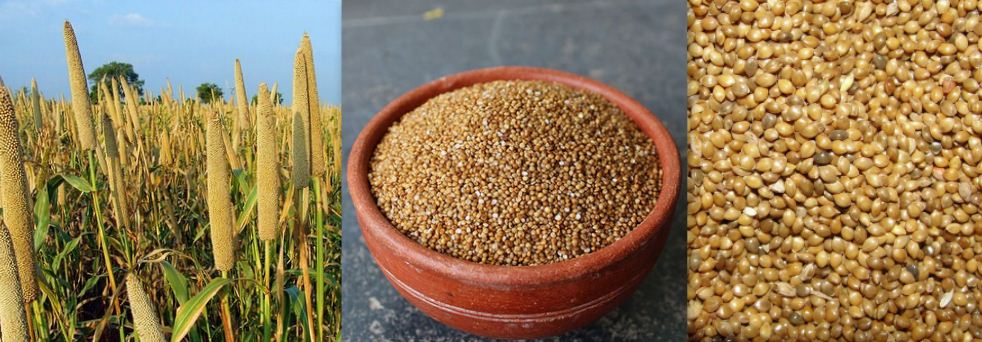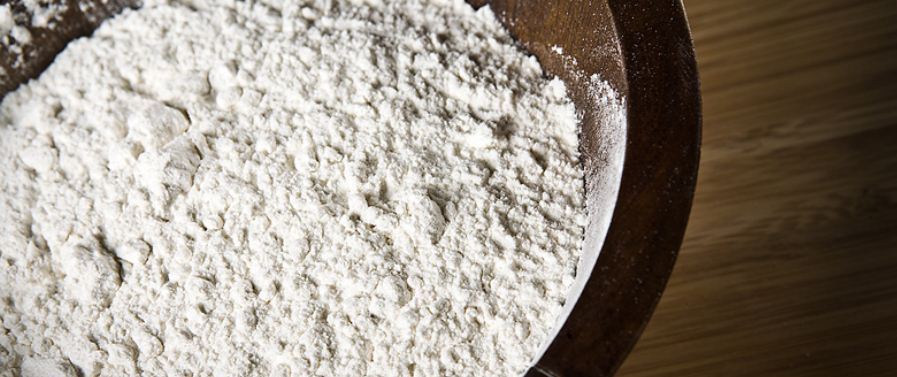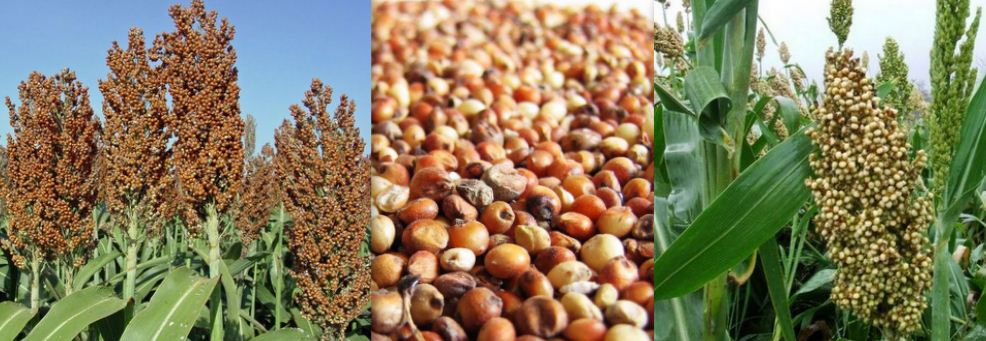About Health Benefits And Nutritional Value Of Millet

Millets contain lots of macro and micronutrients which includes magnesium, protein, phosphorus, carbohydrates, copper, manganese, dietary fiber, fats, water-soluble and fat-soluble vitamins, tryptophan, potassium, calcium, antioxidants and lots more.
Below are Benefits of Millet:
1. Rich Source of Nutrient
It is a rich source of the nutrient magnesium and potassium which makes millet good for the heart, as it helps in regulating and maintaining a normal heart rate as well as reducing the blood pressure, protecting and improving the general cardiovascular health.
The presence of magnesium makes millet good for diabetic patients as it helps in increasing insulin efficiency in the body, reducing any form of insulin resistance which can trigger or cause high glucose levels.
Millets are also rich in fiber, and it is the high fiber content that helps in weight management, aids in digestion and prevents any forms of bowel movement irritation that can cause constipation, cramping and related others.
It also contains antioxidants that help in the proper function of the body by preventing cell damages which might arise from the oxidative processes in the body and can as well help to detoxify the body.
It is also a good protein source that aids in general bodybuilding and calcium too which helps in building and making the bones and teeth strong.
2. Helps to Maintain a Good Sleep
The presence of Tryptophan in millet increases the serotonin level in the body that helps manage stress.
Recent studies show that having a cup of millet each night before getting to sleep helps you to have a lovely and peaceful sleep.
3. Rich in Antioxidants
Millet contains phytochemicals known as polyphenols, which is a very strong antioxidant property. This polyphenols helps to harmful free radicals, reduces inflammation, prevent any kind of heart disease, boost your immune system and as well fight against the virus in the body.
4. Lowers Blood Pressure
Several studies indicate that millets contain magnesium which helps to lower blood pressure and reduces the risk of heart attacks and strokes which is normally caused by atherosclerosis – the buildup of plaque on the artery wall, causing obstruction of blood flow and this plaque is made up of cholesterol, fat and other substances found in the blood.
5. Helps the Coronary Artery to Function Properly
A high intake of millet helps to reduce triglyceride levels in the body. It prevents blood platelet clumping by thinning the blood, thereby helping the coronary artery to function properly and reducing the risk of sunstroke.
6. It Reduces Menstrual Pains for Women
Millet is a great food for women especially those that undergo severe pain during menstruation as it contains a high level of magnesium which will help to ease the pain when consume.
7. Helps to obtain Glowing and Vibrant Skin
The presence of L-lysine and L-proline which is an amino acids in millet helps formulate collagen in the body, a vital protein in the body that promotes skin elasticity. Therefore, eating millet strengthens the collagen level to obtain glowing and vibrant skin.
8. Helps in Weight Loss
Millet contains a high amount of soluble dietary fiber and tryptophan, an amino acid that helps to reduce weight and lowers appetite.
Those who want to lose weight should always add millet to their diet because it helps to keep the stomach full for a long period of time, thereby preventing you from getting hunger quickly as well as overeating.
9. Controls Type 2 Diabetes
Research shows that finger millet contains a low glycemic index that slows down the digestion process and helps to control blood sugar levels. This millet decreases insulin resistance for diabetics patients especially type 2 diabetes.
Also, recent studies show that intake of food that has magnesium mineral content helps to prevent the chance of developing diabetes.
10. Relaxes Your Mood and Promotes Good Sleep
Millets abound in about 120 gm of an amino acid called tryptophan which the body required to make serotonin, a chemical compound in the body that reduces stress and enhances one's mood.
Daily intake of millet every night can help you to get a quiet and peaceful sleep as Tryptophan helps to increase the quality of sleep and helps you to build up energy in the morning.
11. Boost Breast Milk Production
Finger millet, especially (Ragi) helps to increase the formulation of breast milk in the body; that is why pregnant and lactating women are advised to always consume it in large quantity so as to be able to feed the child for a longer period. (Von. Voigtlander Women’s Hospital).
12. Helps to Prevent Gallstone
Food that contains insoluble fiber speeds up the passive airway of undigested food through the colon and as well reduces the secretion of bile acids which forms gallstones in the body.
Millet contains a high amount of fiber that helps to reduce the risk of gallstones. A long term study shows that women who ate a fiber-rich diet were 17% less likely to have gallstones than those who had no fiber. (The American Journal of Gastroenterology)
Nutritional Value of Millet
378 calories of energy
4.2 grams of total fat
Saturated fat is 0.7 grams
Total carbohydrate 73 grams
Dietary fiber is 8.5 grams
The protein content is 11 grams
Folate is 85 mcg
Niacin is 4.720 mg
Pantothenic acid is 0.848 mg
Riboflavin is 0.290 mg
Thiamine is 0.421 mg
Vitamin B6 is 0.384 mg
Vitamin E 0.05 mg
Tocopherol alpha is 0.05 mg
Vitamin K is 0.9 mcg
Calcium is 1%,
Iron content is 17%
Copper is 38%
Magnesium is 28%
Manganese is 82%
Phosphorus is 28%
Potassium is 4%
Selenium is 4%
Zinc is 11%
The nutrients contained in millet makes it good for consumption but still, moderation is the key to getting the right nutritional value of any food without fear of its adverse effect.
Millet is beneficial and gluten-free as well but for cases of people with hypothyroidism, the intake of millet is highly cautioned as it reduces the function of the thyroid which can cause constipation.
The recommended amount of whole grains in the daily diet for adult is 3-6 servings 0f 16 gm for women while men is 4-8 servings. (U.S Dietary Guidelines). So while consuming millet each day make sure it does not cross the recommended levels.
Millets Can be found were?
Millets are cereal crops that can be found in Africa and in Nigeria too, though it can come in different species and colors that are all highly nutritive.
It is popularly and locally called “Dawa” or “Gero” in Hausa, “Okababa” in Yoruba and Achara in Igbo, though still commonly known as dawa in most regions and in some cases it serves as a feed for livestock as well.
Millet is most times processed just as maize to produce local cereal known as dawa, but while maize gives a yellow or white pap known as Akamu, that of millet is brown in color.
And in most cases, maize is combined with millet in the production of pap because millet on its own is more watery and the addition of maize helps to thicken its consistency.
Because of its no so thick nature, it mostly serves as a drink in the North. Millet can also be cooked as porridge as well as used in the production of Kunu drink or Kununzaki.
Summary
Millet is a nutritious food with awesome benefits which includes rich source of nutrient, helps to maintain a good sleep, rich in antioxidants, lowers blood flow, helps the coronary artery to function properly, reduces menstrual pain for women, helps to obtain glowing and vibrant skin, helps in weight loss, controls type 2 diabetes, relaxes your mood and promotes good sleep in the morning, boost breast milk production and helps to prevent gallstone.




